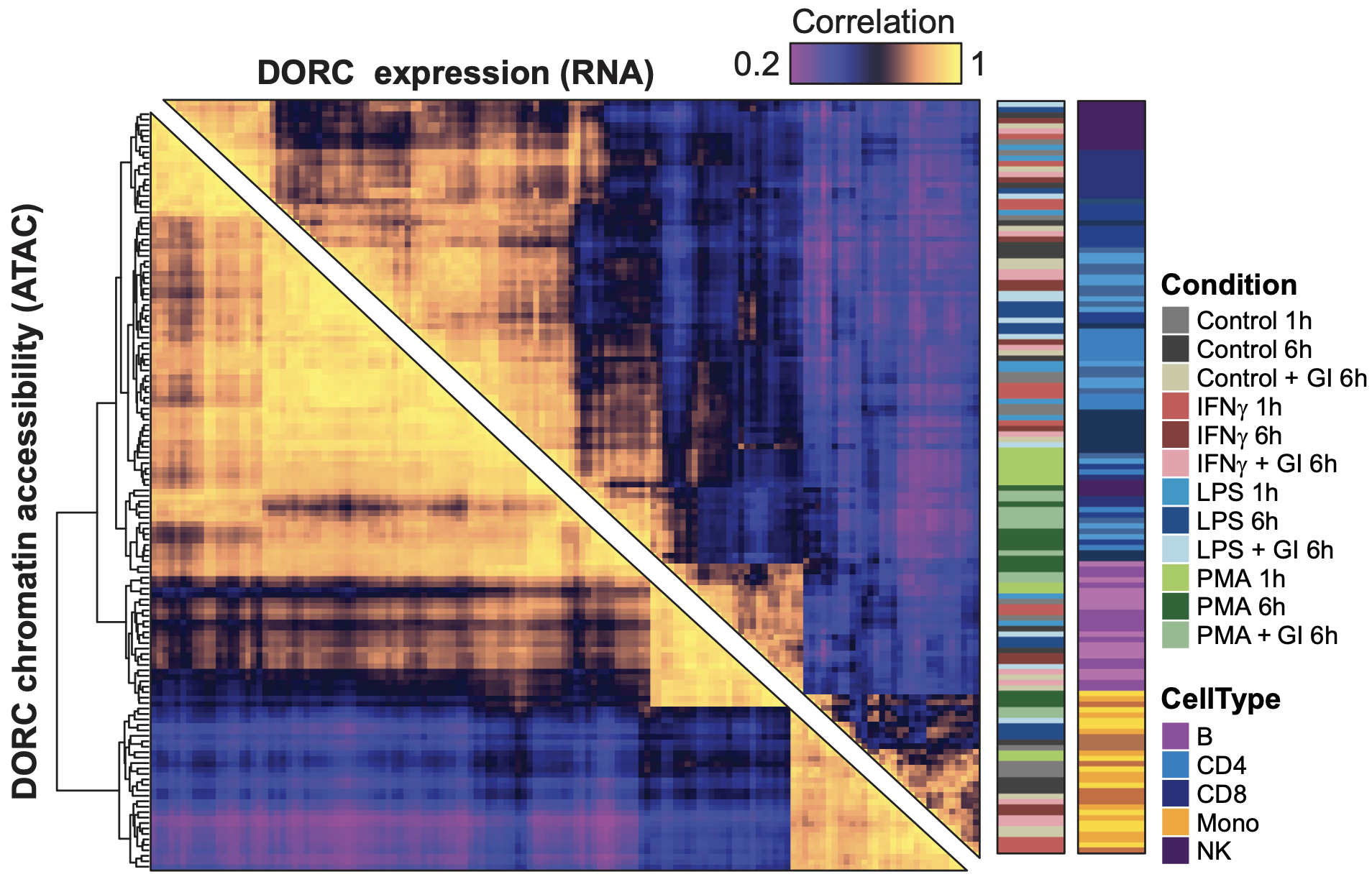Motivation
Cells record life’s experiences through changes to the epigenome. These molecular modifications alter how our DNA is regulated and determine which genes are active or silent. Over time, they allow cells to adapt to internal and external environments, responding to nutrition, inflammation, aging, stress, and other challenges. Our goal is to understand how cells create molecular records of experience and how these changes define health and disease, in effort to develop strategies that rewrite the epigenome and improve health.
-
At the core of our research group, we create sequencing technologies to better understand the epigenome across health and disease. In previous work, we have developed Assay for Transpose Accessible Chromatin (ATAC-seq) and have adapted this approach to profile single-cells (scATAC-seq; dsciATAC-seq; SHARE-seq). Advancing beyond single-cell genomics, we now look to build spatial genomics methods to map the organization of genomes within cells (IGS and ExIGS) and tissues (slide-DNA-seq). These tools are designed to be an engine for biological discovery in the lab.
-
The complexity of the epigenome demands new computational approaches. We are developing AI models that learn from epigenomic data to infer cellular composition and function. These models aim to make the epigenome interpretable, linking cause to consequence and connecting exposures to biological outcomes. Ultimately, they will help predict how lifestyle or therapeutic interventions reshape molecular states across cells and tissues.
-
Our recent work shows that inflammation leaves lasting epigenomic changes that prime cells for cancer. Building on this foundation, we aim to define the signaling proteins, transcription factors, and chromatin associated proteins that connect exposure to epigenetic memories.
-
We are developing strategies to prevent or reverse maladaptive epigenetic states. Our studies explore how exercise, sleep, nutrition, and social connection restore epigenomes. Synergistically, we are engineering proteins that can rejuvenate cellular function. Through these efforts, we aim to define interventions that prevent or reverse epigenetic damage.
-
Modern genetics has provided a blueprint for unraveling genetic variation; our goal is to build an equivalent map for the biology of experience. We are scaling epigenomic sequencing to large human populations, enabling us to link exposures and lifestyle to epigenetic change. We are developing this infrastructure in collaboration with the Epigenomics Program, Broad Platforms, and existing biobank repositories. These efforts will create maps connecting diet, aging, stress, and social context to human health.
-
Among all experiences, chronic stress exerts a uniquely pervasive effect on the body. Through the Biology of Adversity Project, we investigate how adversity is encoded across organ systems. Using models of social isolation and social defeat, we are uncovering how prolonged stress remodels our endocrine system, redistributes immune cells, and reprograms neural circuits. These studies connect molecular changes to organismal physiology, revealing how stress accelerates aging, promotes inflammation, and increases disease risk.
We envision a future where the epigenome becomes a measurable, interpretable, and actionable layer of medicine, representing a molecular record of life’s exposures and providing new opportunities for disease diagnosis and therapy. By integrating large-scale measurements, mechanistic insights, and engineering, our work aims to transform how we understand and protect human health across the lifespan.


